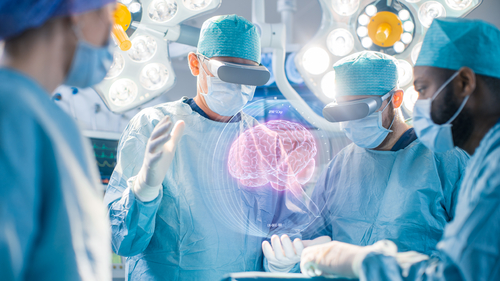Pre-recorded Sessions: From 4 December 2020 | Live Sessions: 10 – 13 December 2020
4 – 13 December 2020
Pre-recorded Sessions: From 4 December 2020 | Live Sessions: 10 – 13 December 2020
4 – 13 December 2020
#SIGGRAPHAsia | #SIGGRAPHAsia2020
#SIGGRAPHAsia | #SIGGRAPHAsia2020











Date: Saturday, December 12th
Time: 11:00am - 11:30am
Venue: Zoom Room 6
Note: All live sessions will be screened on Singapore Time/GMT+8. Convert your time zone here.
Author(s)/Presenter(s):
Pedro Filipe Campos, University of Madeira, Larsys, Portugal
Daniel Simões Lopes, INESC-ID/U Lisboa, Portugal
Nuno Figueiredo, Champalimaud Foundation, Univ Lisboa, Portugal
Abstract:
The growing interest of Augmented Reality (AR) together with the renaissance of Virtual
Reality (VR) has opened new approaches and techniques on how professionals interact
with medical imagery, plan, train and perform surgeries and also help people with special
needs in Rehabilitation tasks. Indeed, many medical specialties already rely on 2D and 3D
image data for diagnosis, surgical planning, surgical navigation, medical education or
patient-clinician communication. However, the vast majority of current medical interfaces
and interaction techniques continue unchanged, while the most innovative solutions have not unleashed the full potential of VR and AR. This is probably because extending
conventional workstations to accommodate VR and AR interaction paradigms is not free of
challenges. Notably, VR and AR-based workstations, besides having to render complex
anatomical data in interactive frame rates, must promote proper anatomical insight, boost
visual memory through seamless visual collaboration between professionals, free
interaction from being seated at a desk (e.g., using mouse and keyboard) to adopt nonstationary
postures and freely walk within a workspace, and must also support a fluid
exchange of image data and 3D models as this fosters interesting discussions to solve
clinical cases. Moreover, VR and AR-based techniques must also be designed according
to good human-computer interaction principles since it is well known that medical
professionals can be resistant to changes in their workflow. In this course, we will survey
recent approaches to healthcare, including diagnosis, surgical training, planning, and
followup as well as AR/MR/VR tools for patient rehabilitation. We discuss challenges,
techniques, and principles in applying Extended Reality in these contexts and outline
opportunities for future research.
